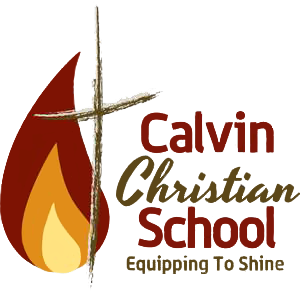Media Literacy Resources
Thank you for attending the workshop!
Is This for REAL? Students become Fake News Sleuths! Slides EEC October 25, 2018
This link goes to the slideshow I made in google slides. I have set the premission to "view only". I am not sure if the links to the videos show up in view only. If not, send me an email and will make a copy of the slideshow and share it with you so you can have your own copy. My email address is on the slideshow. ~a
Click HERE to download the Headlines Sorting Activity
In case you are not familiar with The Onion here is a link to "The Facebook CIA Project"
 | This Is That is a current affairs program that doesn't just talk about the issues, it fabricates them. Nothing is off limits - if it's relevant to Canadians, we'll find out the "This" and the "That" of the story. Each week, hosts Pat Kelly and Peter Oldring introduce you to the voices and stories that give this country character in this 100% improvised, satirical send-up of public radio. |
Britannica Digital Learning - Blog
They have a series of resources called "Fight the Fake" and more ...
EdWeb
Read this article based on an EdWeb webinar in conjunction with Britannica Learn, hosted by Tiffany Whitehead.
Free webinars on a variety of topics. If you register but can not attend, the recording of the webinar is made available for you to watch at your convenience.
I recently attended a Webinar "Fight Fake News: Media Literacy for Students" led by Tiffany Whitehead and sponsored by Britannica Learn which was excellent! If you are a member of EdWeb, you can access the recording and slides from this webinar.
Media Smarts
www.mediasmarts.ca
Canadian content, free lesson plans grades K-12.
This is my first "Go To" source for media lessons.
Authenticating Information - fake or fiction pictures
News Literacy Project
The News Literacy Project, a nonpartisan national education nonprofit, provides programs and resources for educators and the public to teach, learn and share the abilities needed to be smart, active consumers of news and information and equal and engaged participants in a democracy.
Common Sense Media
www.commonsensemedia.org
American content, free lesson plans grades K-12
This is my second "Go To" resource for media lessons
Mozilla Learning Network
https://learning.mozilla.org/en-US/activities/web-lit-basics/
This six-part series helps learners become familiar with reading, writing and participating on the web. They'll discover the foundations of the web through production and collaboration. This is an ideal kit for Mozilla Clubs.
I haven't used these yet, but plan to!
Stanford University
https://sheg.stanford.edu/node/263
Stanford History Educators Group (SHEG)
Read like a Historian - Curriculum
Checkology
BASIC - first 4 lesson are free
Premium Membership - $3.00 - $5.00 per year
Newseum
Free sign-up. Great flowchart.
Posters
Fearless Fact-Finding - Use fact-checking websites to find more information
How to Spot Fake news - International Federation of Library Associations and Institutions
The Library Marketplace (OLA) - Bookmarks and posters to purchase
Phil Bradley's Fake/Spoof Websites
This is an extensive list of websites that can be used to teach students how to tell the difference between fact and fiction.
| NAME | DESCRIPTION | TYPE OF FILE | |
|---|---|---|---|
| Is This for REAL? | Slide Deck | W Library | Download |
